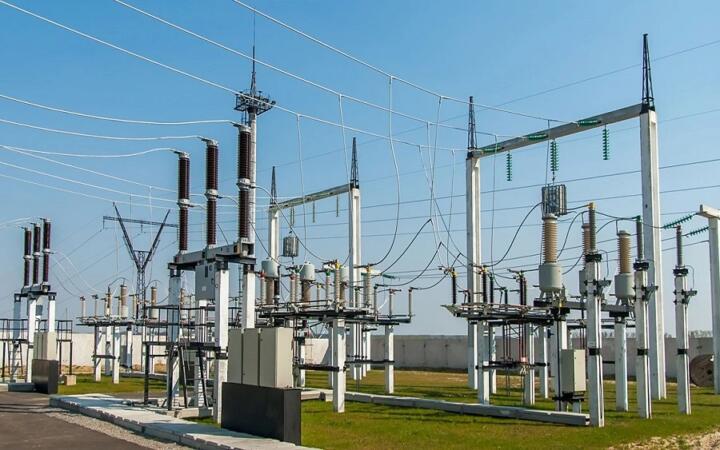Nigeria’s electricity sector saw 187,000 new prepaid meters installed during the first quarter of the year, a figure hailed by distribution companies (Discos) as a marker of progress in reducing the country’s longstanding metering challenge. However, despite this uptick in installations, experts warn that the metering gap remains stubbornly large, leaving millions of consumers still without accurate billing or access to metered electricity.
The minister of power recently announced the figures in a briefing meant to show that Discos are making steady strides in equipping households and businesses with prepaid meters. According to the industry, the 187,000-meter rollout included installations across urban and peri-urban locations, covering residential, commercial, and industrial customers. Officials argue that this effort is critical for moving away from flat-rate billing—which often costs consumers more—or estimated billing practices that breed distrust and inaccuracy.

Still, the total number of new meters is small compared to the need. Nigeria currently has an estimated 13 million electricity connections, yet only about 3.5 million of these are equipped with functioning prepaid meters. That means roughly ten million Nigerians continue to experience unmetered supply—either being billed through estimates or denied service due to inadequate supply. Critics say this perpetuates inefficiencies, discourages willing customers, and hampers the financial viability of the sector.
Consumers without meters have long been victims of estimated billing, with charges calculated based on historical usage or assumptions about consumption. Discos cite lack of funding, low supply of metering material, and outdated distribution infrastructure as barriers to closing the metering gap. They also point to the complexity of retrofitting existing lines, which often involves lengthy feasibility studies and frequent local challenges, including vandalism and illegal connections.
To address supply shortages, a consortium of Discos has recently placed orders for an additional five million prepaid meters, leveraging credit facilities and support from development partners. Some companies are piloting microfinancing programmes that allow customers to pay for meters in instalments through electricity tokens—a move designed to increase meter uptake among lower-income households. These initiatives will kick off later in the year and are expected to accelerate the metering rate if implemented effectively.
Electricity analysts stress that prepaid meters offer multiple benefits: they promote energy conservation, reduce revenue losses caused by theft and billing fraud, and improve transparency between consumers and Discos. They note that countries which fully adopted prepaid metering witnessed significant declines in technical and commercial losses—with some cutting losses by up to 30 percent over a five-year period.
Still, several challenges threaten progress. Nigeria’s electricity value chain continues to face cash-flow constraints, and Discos often struggle to balance investment in infrastructure with operational needs. While metering remains a priority, stakeholders caution that consumer engagement will be equally important. Nigeria’s diverse customer base—with its mix of low-income households and small businesses—means that affordability, trust, and communication will be critical to the success of prepaid metering programmes.
Consumer protection groups have also emphasized the need for clear consumer education, transparent payment channels, and strong grievance mechanisms. Many consumers report being overcharged for meters or waiting months after payment before installation. Others face technical issues with meter compatibility and registration, while some stay on estimated billing due to unreported discrepancies or lack of follow-through.
Regulatory authorities, including the Nigerian Electricity Regulatory Commission (NERC), have acknowledged these concerns and introduced guidelines aimed at accelerating meter rollouts. These regulations mandate that Discos prepare and submit meter implementation schedules, fund meter procurement, and ensure timely customer service—including complaint handling. However, enforcement remains inconsistent, and analysts argue that penalties for missing targets need to be meaningful to drive urgency.
One emerging concept is the establishment of metering cooperatives, where communities take possession of meter procurement and basic maintenance, supported by local Discos. Under this model, customers form groups, contribute capital, and manage installation logistics in collaboration with licensed installers. Pilot schemes in several states have shown promise in lowering costs, reducing delays, and improving local ownership.
Despite the problems, the 187,000-meter figure offers a sliver of optimism. At that rate, the country would need more than five years to close the existing metering gap—unless installations rise sharply or additional meter financing is secured. Industry projections calculate that installing 500,000 to 1 million meters annually, combined with back-stop financing and stronger regulation, could substantially reduce the deficit within three years.
Beyond metering, the quality of electricity supply remains a concern. Prepaid or not, power frequency instability, load-shedding, and infrastructure decay continue to frustrate users. Some industry voices argue that even as meters are installed, addressing generation shortfalls and improving distribution resilience will be necessary to deliver reliable service.
Still, experts agree that metering is a foundational step toward electricity market reform. Transparent billing builds consumer trust, encourages payment, and boosts revenue collection, creating a more viable environment for private investment. It also opens the door to innovative tariff designs, time-of-use pricing, and demand-side management programmes.
As the year progresses, attention will shift to the next round of meter rollouts, financing mechanisms, community engagement programmes, and regulatory oversight. Whether 187,000 meters mark a turning point or a minor increment remains to be seen. But for millions of Nigerians who have endured cloudy billing and unreliable service, the promise of a more transparent, fairer electricity system hinges on rapid and equitable metering rollout.
Ultimately, closing the metering gap will define the next phase of Nigeria’s electricity reforms—transforming an industry mired in technical and commercial losses into one that delivers power and accountability to every connection. If momentum is sustained, the prepaid meter may yet become a symbol of reform rather than reprisal.
Support InfoStride News' Credible Journalism: Only credible journalism can guarantee a fair, accountable and transparent society, including democracy and government. It involves a lot of efforts and money. We need your support. Click here to Donate
